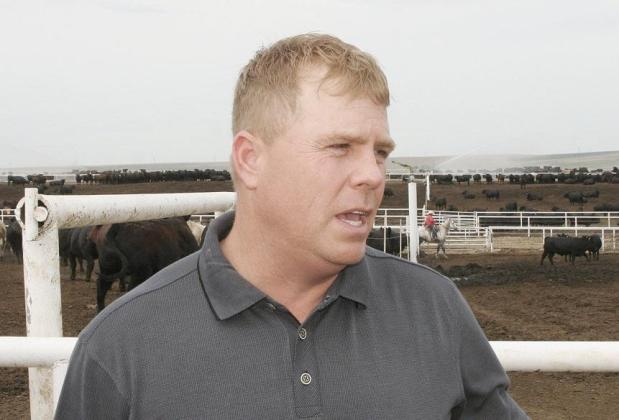A cattle rancher in Washington state was sentenced last October to 11 years in federal prison for defrauding Tyson Foods Inc. and another company out of more than $244 million by charging the two companies for the purported costs of purchasing and feeding more than 265,000 head of cattle that did not exist.
It was the biggest scandal in the history of the cattle industry market.
Cody Allen Easterday, 51, of Mesa, a small town nestled in the foothills of the Cascade Mountains, pleaded guilty to a federal charge of wire fraud. He admitted he used his company, Easterday Ranches Inc., to enter into a series of agreements with Tyson Foods and Segale Properties.
Segale describes itself as a fourth-generation family-owned commercial real estate development and property management company in Tukwila, Washington, that owns and operates “a diverse mix of commercial, industrial, residential, agricultural, and natural-resource properties.”
Easterday Ranches agreed in 2014 to buy and feed cattle on behalf of Tyson and Segale. Per the agreement, Tyson and Segale would advance Easterday Ranches the costs of buying and raising the cattle. Once the cattle were slaughtered and sold at market price, Easterday Ranches would repay the costs advanced, plus interest and certain other costs, retaining the difference as profit.
Between October 2016 and November 2020, Easterday submitted and caused others to submit false and fraudulent invoices and other information to Tyson and Segale. The false and fraudulent invoices sought and obtained reimbursement from the two companies for the purported costs of purchasing and raising thousands of head of cattle that neither Easterday nor Easterday Ranches ever purchased, and that did not actually exist.
As a result of the fraud scheme, Tyson and Segale paid Easterday Ranches $244 million for fraudulent expenses incurred for 265,000 “ghost” cattle.
Easterday used the fraud proceeds for his personal use and benefit, and for the benefit of Easterday Ranches, including to cover approximately $200 million in commodity futures contracts trading losses that Easterday incurred. In connection with his trading, Easterday also defrauded the CME Group Inc., which operates the world’s largest financial derivatives exchange, by submitting falsified paperwork, which resulted in the CME exempting Easterday Ranches from otherwise-applicable position limits in live cattle futures contracts.
“Mr. Easterday amassed significant personal wealth, yet he wanted more, so he defrauded his victims of nearly a quarter-billion dollars by charging for cattle that never existed,” said U.S. Attorney Vanessa R. Waldref for the Eastern District of Washington. “But for the combined and incredible efforts of our law enforcement team, today’s sentence and the $244 million restitution award – one of the largest in our District’s history – would not have been possible. Fraud has a debilitating impact on society by draining our communities’ limited resources.”
The $244 million in restitution ordered by the court included $233 million to Tyson and $11 million to Segale Properties.
Easterday speculated in cattle futures markets
In a related matter, the Commodity Futures Trading Commission filed a complaint in Washington’s Eastern District federal court against Cody Easterday on March 31, 2021.
For more than 10 years, Cody Easterday “accumulated staggering losses speculatively trading in the cattle futures markets,” ultimately amassing more than $200 million in losses in his personal and corporate accounts. To meet margin calls, Cody Easterday “concocted a scheme to defraud” Tyson, a producer of beef and pork products.
Beginning about Oct. 1, 2016, and continuing to at least Dec. 1, 2020, Easterday Ranches Inc. and Cody Easterday “operated a scheme to defraud” Tyson out of more than $233 million by submitting “fabricated invoices” for reimbursement for “ghost” cattle that Easterday Ranches had agreed to purchase and care for.
Easterday admitted that he submitted fake invoices to Tyson for cattle that never existed, and that he did so “to generate money to cover millions of dollars of losses he and Easterday Ranches incurred while engaging in speculative trading in the cattle and corn futures markets.”
In furtherance of the fraud, in at least 2017 and 2018, Cody Easterday, co-owner and co-manager of Easterday Ranches, submitted false cattle inventory, purchase, and sales figures to the Chicago Mercantile Exchange in two hedge exemption applications seeking permission to “exceed the exchange’s speculative position limits and avoid disciplinary action.” However, Easterday Ranches was not entitled to any hedge exemptions “as a result of the false information in its hedge exemption applications…”
Easterday, like McClain, was indebted to Rabo
Ironically, Easterday and his wife, like Brian McClain, also were indebted to Rabo AgriFinance.
Cody Easterday and several members of his family were general partners in 3E properties that included Easterday Farm.
On March 6, 2020, Cody Easterday and Easterday Farm entered into a “QuickLine” credit application also known as a Vendor Finance Loan with Rabo. More than $1 million on that loan was due and owing on Feb. 8, 2021.
A federal judge ruled in November 2022 that Cody Easterday owed $995,715 in principal plus $44,224 in interest on that loan. A “Satisfaction of the Judgment” was entered into the court record on Jan. 6, 2023.


